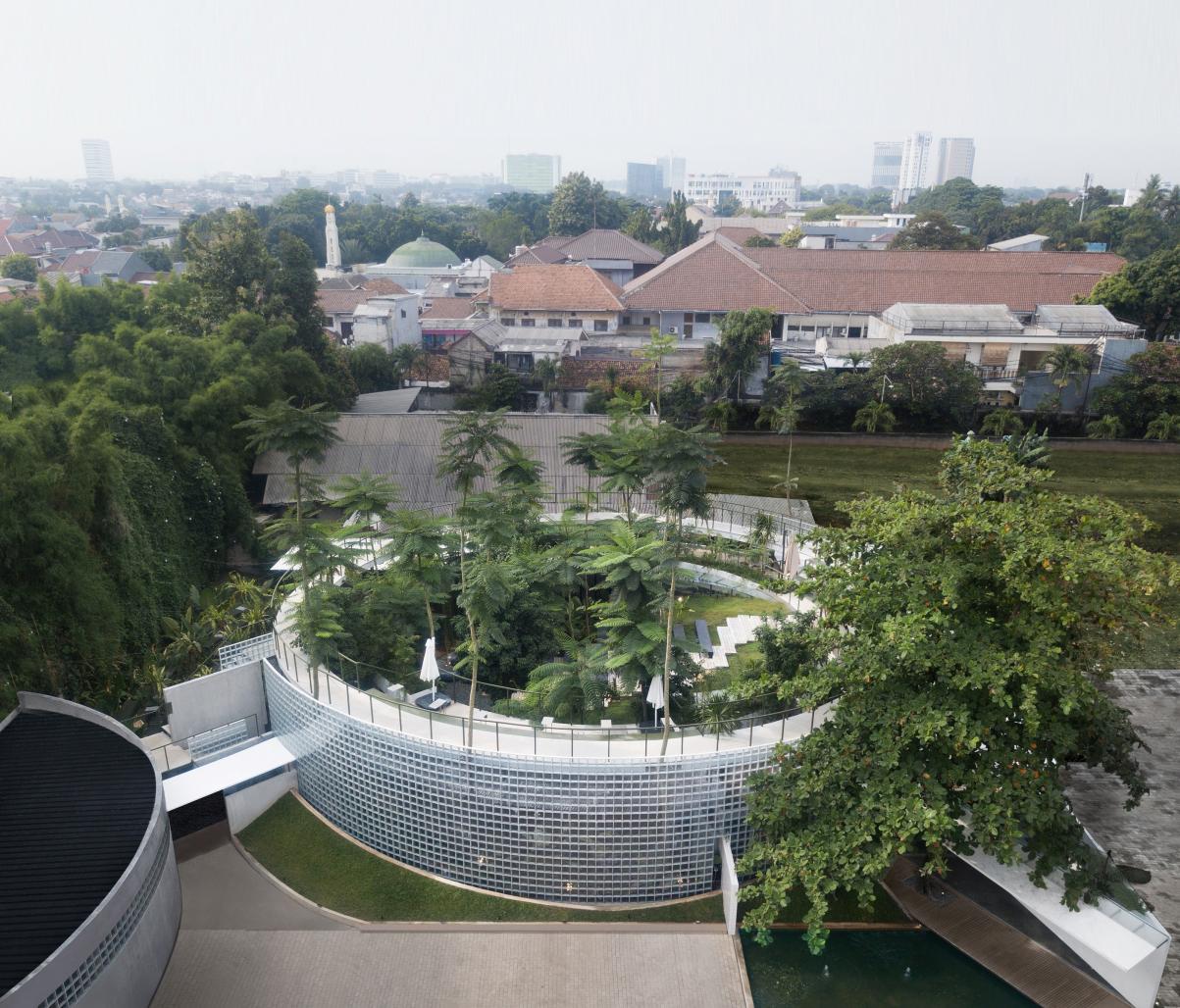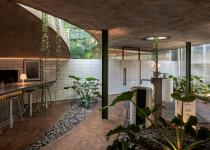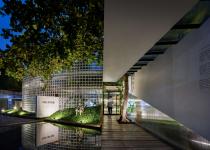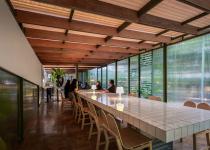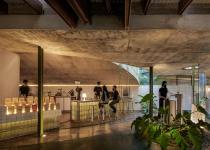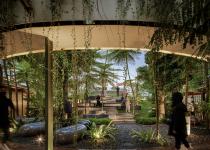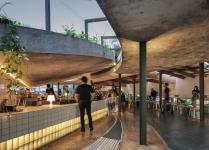Ring Garden Café called Tanatap is a small prototype of multi-leveled greenspace with dynamic platforms that rise and fall to create a walkable roofscape. The structure will be connected to create series of floating amphitheater surrounding green spaces and tropical outdoor activities in the middle.
Started with the question, what if functional spaces and the very definition of building only acted as an envelope of an open garden. Design was to demonstrate a disappearing indoor space, hidden within a simple multi-leveled garden. Spaces that were created became a sequential space, and was not an initial space. At the heart of our project is the idea of playful togetherness. We want this to be a refreshing and dynamic new civic space that is sustainable – businesswise in developing country cities like Jakarta, where government-run public space is unreliable.
The architects developed three strategies to create a functional integrated cafe space within the nature. The first approach is to connect all the existing tree as means of circulation for the visitor. Secondly, stringing all the structure to create an underground intimate scale experience in the main entrance. Next, is to create a contrast experience in scale, color, density of nature, and amount of natural sunlight penetration hidden in conceal doors in both wings in the lobby/bar area. This dynamic intervention into the existing landscape to ensure that the new landscape intervention performs aesthetically in harmony with the garden as a whole.
It was designed as an experimental programming to see and learn on how user will behave once architect restructures the hierarchy of space. RAD ar uses this project to learn more about visitor behavior in defining spaces they don’t understand, that is why most of the furniture in this café is undefined, blended with the hardscape and feature of the landscape, therefore acted as an experiment of how visitor/user defines their own meaning of comfort in using this furniture. It was seen as a social experiment on how people keep redefining their sense of third space, in open space / garden, and keep changing it to keep up with the crowds in different time of the day.
As visitors enter the Ring Garden, they are surrounded pathway bridge that connects 2 existing trees that blurs the definition of indoor and outdoor space. Upon entering the spaces, they were teased by what appears to be sliced of skylight and people activities in garden above. Concentric space with coffee bar in the middle, space branches into 2 spaces behind the concealed door that gradually become less intimate and flooded with more natural light penetrating. Both spaces are leading to the main spacious multi-leveled garden area as the ending and indirectly persuading visitor to enjoy more of what tropical garden could be.
In the upper level, the whole ring garden can be seen as a transitional space between the city and the landscape. Looking at the sculpture from further away, it punctures a skyline-like image of a city onto the horizon, but when entering the square, the colour and light, invite the visitors in a sensual way into the natural landscape of the Ring Garden.
Glass block is chosen as main materials for the envelope, as it is blurring the definition of whether or not this is considered a building / a garden metaphorically, buffering privacy of customer inside, while offering plenty of natural light from inside. Structure of the walls is integrated within the glass block to ensure its lightness, giving a sensation of a very heavy materials were floating above garden and slowly scattered along with the experience within.
RAD ar saw covid-19 pandemic event as a small window of opportunity to more promote more sustainable means of outdoor tropical commercial spaces that hopefully can inspire many other to follow. It is a gesture of unwavering optimism how to make a capitalism- sustainability works in developing-country minded like Indonesia.
2021
2021
Architects: RAD ar (Research Artistic Design architecture)
Area: 750 m²
Year: 2021
Photographs:KIE, Mario Wibowo
Manufacturers: Conwood, Mulia, Toto
Lead Architect: Antonius Richard Rusli
Design Team: Felda Zakri, Partogi Pandiangan, Leviandri, Alifi Muhammad Arief
